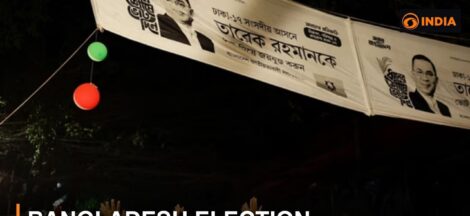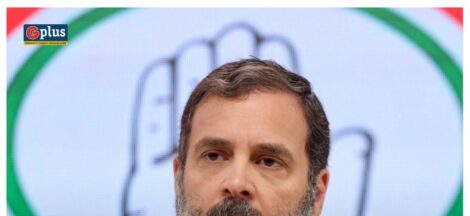By
Harihar Swarup
It
is unfortunate that Triple Talaq Bill has again caught up in petty politics. It
has a smooth passage in the Lok Sabha but got stuck up in the Rajya Sabha as
BJP does not have majority in the Upper House. What is wrong if the punishable
clause in the bill is retained? In that event, the question is asked who will
look after the family of an offender if he is sent to three years’
imprisonment? Opposition has been demanding that the draft law be first send to
a Select Committee for legislative scrutiny. One way out could be if the
government takes up the responsibility of financially supporting all such
Muslim women whose husbands are in jail for pronouncing triple talaq.
Government did not agree to the proposal.
Mohammed
Arif Khan, a Minister in the Rajiv Gandhi’s government, vehemently pleads for
retention of the punishable clause. He was trying to convince some senior
Congress members that the clause envisaging, “imprisonment for a term which may
extend to three years”, was necessary to discourage the practice of
talaq-e-biddat (three pronouncement of talaq, at one and same time). His point
was that unless there is fear of stringent punishment, no law can be enforced.
Same was the case with triple talaq Bill now.
Arif
had become a hero of oppressed Muslim women in what was commonly known as the
Shah Bano case in 1986. It was a controversial maintenance lawsuit in which the
Supreme Court delivered a judgment favouring that maintenance be given to an
aggrieved divorced Muslim woman by her estranged husband. The then Congress
government, headed by Rajiv Gandhi, gave in to the pressure of Muslim orthodoxy
and enacted a law with its most controversial aspect being the right to
maintenance for the period of iddat (after the divorce). It shifted the onus of
maintaining a divorced Muslim woman to her relatives or the Wakf Board. It was
seen as discriminatory as it denied right to basic maintenance available to
non-Muslim women under secular law.
Arif
Khan has always supported reformation within Muslims. He resigned from position
of Minister of State protesting against the Rajiv Gandhi government’s stand on
Shah Bano case in 1986. He vociferously defended Supreme Court judgment on Shah
Bano case in Parliament. Arif opposed
triple talaq and said that it should be punishable with three years in jail.
Coming
to the present time, the Supreme Court in the matter of Shayara Bano vs Union
of India and others on August 22, 2017 set aside the practice of talaq-e-biddat
(three pronouncements of talaq) practised by certain Muslim husbands to divorce
their wives. This judgment gave boost to liberate Indian Muslim women from the
age-old practice of capricious and whimsical method of divorce, by some Muslim
men, leaving no room for reconciliation.
In
spite of Supreme Court setting aside talaq-e-biddat, there have been reports of
divorce from different parts of the country. It is seen that setting aside of
Tilaq-e-biddat by apex court has not worked as deterrent in bringing down the
number of divorces among certain Muslims. It is, therefore, felt that there is
need for state action to give effect to the order of the Supreme Court and to
redress the grievances of victims of illegal divorce, says the Muslim Women
(Protection of rights on Marriage) Bill, 2017.
The
Congress members point that the party is not opposed to the Bill as such, but
has opposed the three-year punishment which, it felt, was too harsh. If the
head of the family is sent to three years’ imprisonment, who would look after
the family; the divorced woman and children, Congress members asked. They
wanted the bill to go to a select committee so that it could be further
examined.
Congress
pointed out that party has reservation over the provision in the Bill for
three-year term for any Muslim man who divorced his wife by uttering talaq
three times in quick succession. Putting the bread-winner of a family in jail
would not just be injustice to his family, but also to the women and children
as they would be left to fend for themselves without financial support during
the period.
The
Congress, which has been demanding removal for the criminal provisions in the
Bill, stuck to its demand for referral of the Bill to the select committee.
There is no hope for the triple talaq Bill to be passed in the Winter session
which to coming to an end. There is scant hope of the Bill being passed in the
Budget session, the last one before April-May general election. Meanwhile, the
hapless Muslim women continue to suffer. (IPA
Service)
The post Political Powerplay Over Triple Talaq Bill Unfortunate appeared first on Newspack by India Press Agency.



